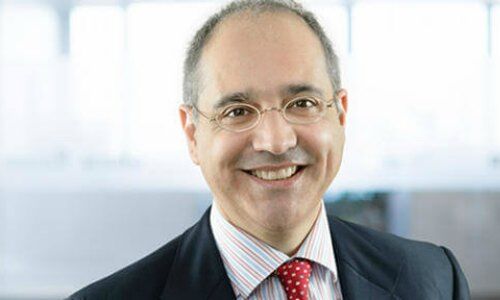So bitcoin is still a projection of misguided hopes and false expectations.
Not wrong expectations, but hopeless ones.
Were you ever as skeptical about financial innovations during your career in traditional finance as you are towards cryptocurrencies?
Yes, but for other reasons. I thin high-frequency trading is bunk. It is skimming profits from others with the help of privileged technology. The argument that high-frequency trading makes markets more liquid is a pretext. Global securities markets work very efficiently without high-frequency traders. I'm in favor of free markets, but I wouldn't oppose a ban. By contrast, I would clearly be against a ban on bitcoin.
Two or three years ago, bankers usually termed cryptocurrencies speculative – and blockchain interesting. Today, bitcoin and digital assets are nearly established, while a fantastic blockchain application is not.
That's true. The idea of a decentralized, immutable register is still wonderful. But blockchain is often a solution to a problem that doesn't exist. Blockchain's only major success to date is bitcoin.
How do you mean?
I think that systems to be innovated by blockchain normally already work quite well. Look at tokenization: why would be want to tokenize global stocks at all cost, when exchanges are already some of the most efficient markets anyway?
«Have tokenization's issues been thought through?»
It would be more than enough to make progress on the settlement. What's the specific added value when I start to tokenize the world, from real estate to a bottle of Coke?
You can make unlisted assets and companies investable...
OK, but honestly, who benefits from this tokenization, like what for example Daura is trying to do with a blockchain-based share register? If a small- or mid-sized company has all of five shareholders, surely none of them need tokenized shares. I'm sure there are certain interesting use cases, but to begin there always needs to be a genuine problem. If it can be solved more efficiently through blockchain and tokens, then I'm interested.
It would make even these small- and mid-sized companies accessible as investments.
Has this really been thought through? Who is the market-maker if, for example, I want to sell a few of my Descartes shares? How can an investor be certain that the token fairly represents the price being offered to be?
«Tokenization bakes inefficiency into an efficient system»
There will hardly be independent research on every small- and mid-sized enterprise. Or if I buy a token that represents a fraction of a blue-chip stock: am I entitled to a dividend, or do I have a fraction of an investor vote? We're still quite some distance from these fairly complex practical problems. I believe tokenization will bake some inefficiency into a system that functions very well already. We should instead look to make existing systems more efficient and cheaper.
But the fact is that many established banks are now looking to get into the business of digital assets through tokenization.
Fine, then we'll soon have a dozen or more tokenizers in Switzerland. Again, what purpose do they serve? What all do these banks want to tokenize?
So you recommend hands-off.
I'm not saying that. I own real estate tokens – the so-called Crowdlitoken – in order to better understand the topic. But with other property tokens, like those with which I become a partial owner of a piece of real estate abroad, it becomes a lot more complicated. Or the other way around: there are legal hurdles for foreign property buyers in Switzerland. What good does a token do them? There's a lot to clarify before investing.
Is it not like bitcoin – an innovation needs several iterations before its most efficient use and purpose emerges?
Yes, I can imagine that being the case with tokenization. Bitcoin is a step further: it fulfills its role as an asset with purchasing power.
Adriano Lucatelli is co-founder and CEO of Descartes Finance, a digital wealth manager. The 54-year-old entrepreneur, lecturer, and co-founder of a think-tank began his career in 1994 at Credit Suisse. From 2002 until 2009, the Swiss native was a managing director at UBS in Switzerland as well as a member of the domestic management committee.
- << Back
- Page 2 of 2




















